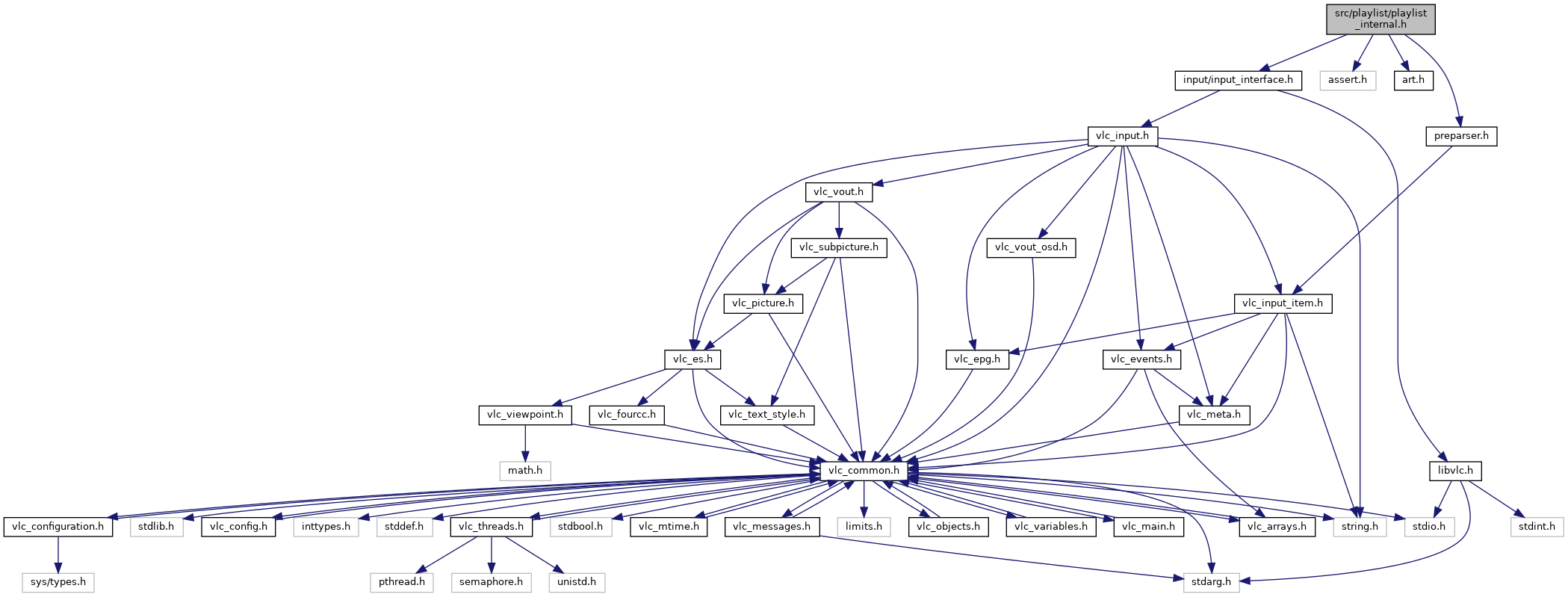Include dependency graph for playlist_internal.h:

Go to the source code of this file.
Data Structures | |
| struct | playlist_private_t |
Macros | |
| #define | VLC_PLAYLIST_EOS_BURST_THRESHOLD (CLOCK_FREQ / 4) /* 250 ms */ |
| Reset current item array. More... | |
| #define | pl_priv(pl) container_of(pl, playlist_private_t, public_data) |
| #define | PLAYLIST_DELETE_FORCE 0x01 |
| delete node even if read-only More... | |
| #define | PLAYLIST_DELETE_STOP_IF_CURRENT 0x02 |
| stop playlist playback if node is currently the one played More... | |
| #define | PLAYLIST_DEBUG 1 |
| #define | PL_DEBUG(...) msg_Dbg( p_playlist, __VA_ARGS__ ) |
| #define | PL_DEBUG2(msg, ...) {} |
| #define | PLI_NAME(p) p && p->p_input ? p->p_input->psz_name : "null" |
| #define | PL_LOCK_IF(cond) pl_lock_if( p_playlist, cond ) |
| #define | PL_UNLOCK_IF(cond) pl_unlock_if( p_playlist, cond ) |
Typedefs | |
| typedef struct vlc_sd_internal_t | vlc_sd_internal_t |
| typedef struct playlist_private_t | playlist_private_t |
Detailed Description
VLC playlist internal interface
Macro Definition Documentation
◆ VLC_PLAYLIST_EOS_BURST_THRESHOLD
| #define VLC_PLAYLIST_EOS_BURST_THRESHOLD (CLOCK_FREQ / 4) /* 250 ms */ |
Reset current item array.
Playing a tiny stream (either empty, or with unreported errors) in a loop would cause high CPU usage. To mitigate the problem, temporize if several EOS are received too quickly.
 1.8.16
1.8.16